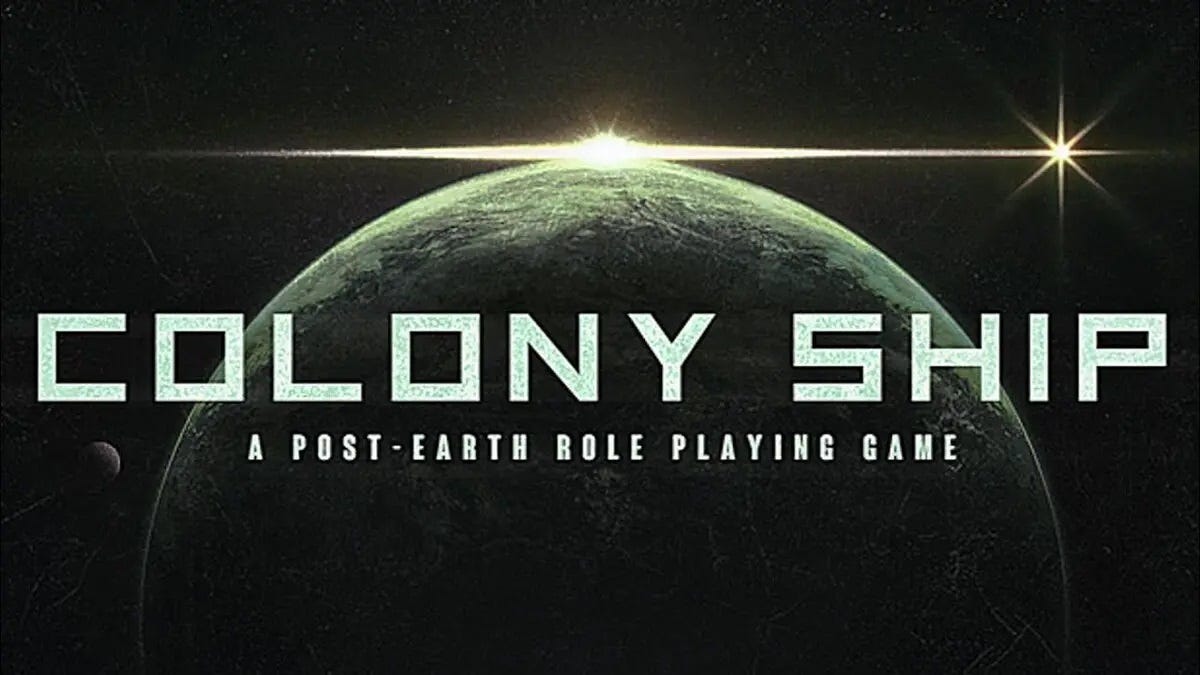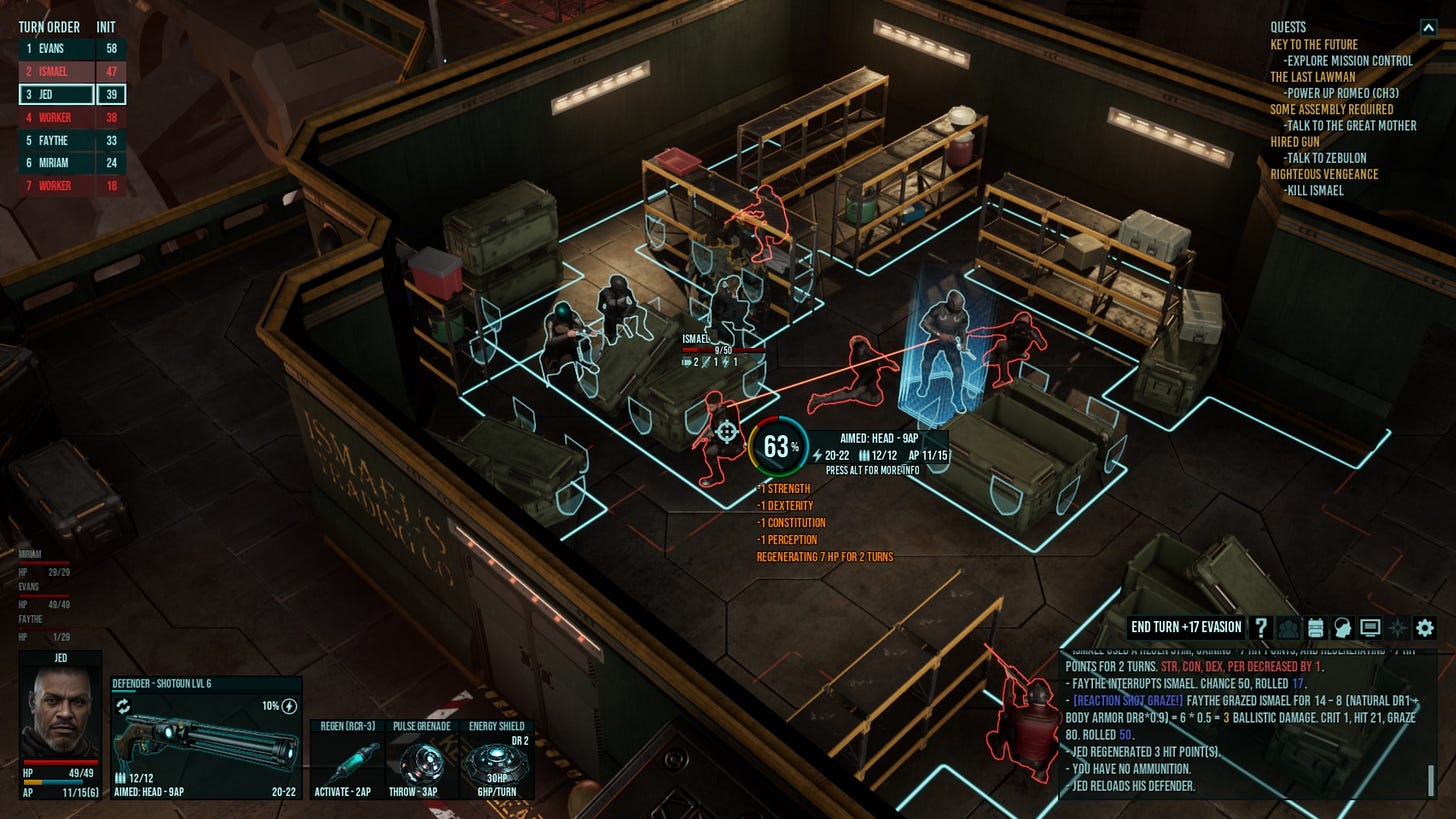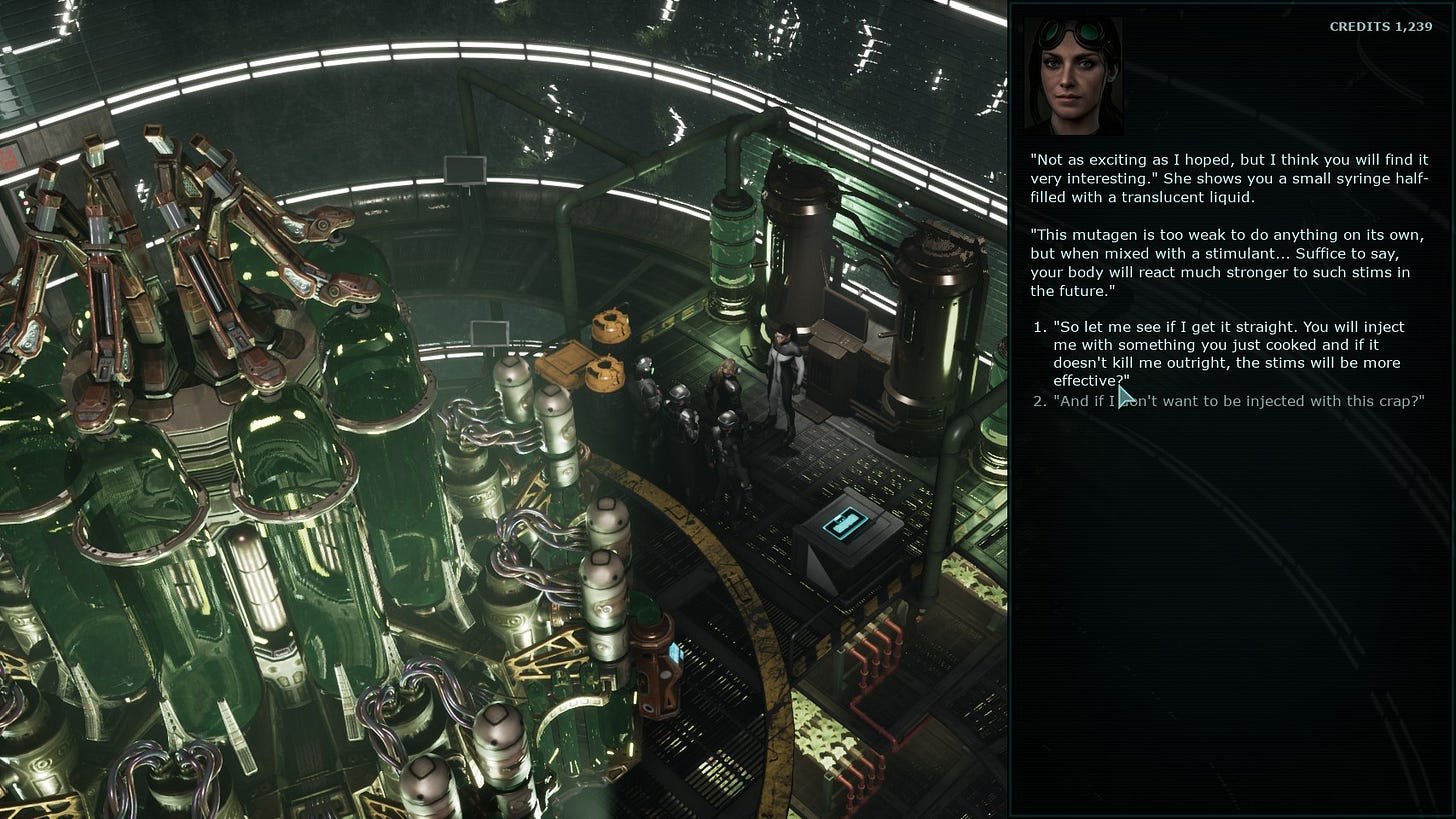Colony Ship: A Post-Earth Role Playing Game — Space Orphans
Review
Iron Tower Studio is heavily influenced by the classic Fallout titles, so much that their first game played like Fallout in Ancient Rome: The Age of Decadence. Now, their second full-scale CRPG is directly inspired by Robert A. Heinlein’s Orphans of the Sky, one of the earliest depictions of the generation ship trope in science fiction. Colony Ship: A Post-Earth Role Playing Game is likely the most notable entry in this genre.
Years ago, I wrote about Insomnia: The Ark, also influenced by Fallout, which sadly failed as a product. Colony Ship has the makings of something more special and polished, rock-solid and unforgiving. The systems are intelligent; they make organic sense in the granular logic of combat. The challenge can be a bit much sometimes, but there are now options to modulate the difficulty, as per the latest patch.
I first dipped my toes on Early Access during the GOG spring sale in 2021; I found it compelling but in need of polish. Then I shelved it until last month, when Iron Tower finally released it. The game is now more polished and stable, and more accessible than ever. This review is based on my first playthrough with a diplomacy build on the Underdog difficulty. Colony Ship is the most unforgiving CRPG I have ever played.
By the Skin of Your Teeth
How do I even begin to describe the challenge in Colony Ship? So, you want to do this one thing? But you don’t have this other thing or this skill level. Okay, maybe I’ll try this instead. Cool, but do you know what happens after you do this? This and that. Are you prepared for that? No? Not yet? Okay, so find something else to do. Now you know your options, but what if you missed something? You actually did? You killed this character early in the game? Well, now you can’t do this quest either.
Everything is tied to everything else. The interconnected systems, the quest design, the combat mechanics… everything impacts on everything else. So if you built your main character without considering many factors and possibilities, chances are you will find yourself regretting some early choice in the game, whether in a quest or the feats you picked for your squad.
The difficulty in Colony Ship isn’t tied strictly to the combat, but to the many ways in which your character can fall short of required checks to open up access to other areas or characters. This is classic CRPG design, but it can often feel unfair to players. And you can’t just grind to make up the difference; you have to move on and find another quest or battle to make some progress. The game tantalizes you with options and upgrades, but it takes time for you to reach some required levels of proficiency.
Organic Accuracy
The overarching design is solid, and the developers don’t waste your time as a player. That’s more than we can say for many releases these days. That said, the RNG factor in combat will make you curse and punch the air many, many times, even when you min-max. The accuracy design, as explained in the video tutorial below and as I understand it, has this wild card quality, which was also common in Fallout 1/2. Some players will work through this; others will think this is bullshit, and rage-quit.
Iron Tower prides itself on this: “Proudly serving 0.003% of the Global Gaming Market since 2015. The remaining 99.997% need not apply.” To play their games is to accept this social contract: yes, it’s unfair, it’s punishing and unforgiving. How does it reward you for enduring all these punishment sessions? You don’t get a lot of loot, either; most loot you pick up is trash. The rewards are as complex as the challenge.
The animation in combat is simple but fluid and detailed. The way enemies target your squad’s legs or heads is gritty, as opposed to the usual meshes slashing together. The developers understand the organic nature of combat in these precise conditions of a colony ship with decaying structures. Learning to identify weaknesses to exploit wins fights quicker than spraying bullets and missing for many turns.
Power Players
Playing as a diplomacy build character with high Persuasion and Streetwise, there were times when I felt just pushed and pulled back and forth between NPCs: Ava and the Monks, Abraham, Hanson, Silas, and other main characters. Here I was supposed to be masterminding resolutions with my skill checks, but it felt more like being yanked around by the big players. The enmity and animus between factions could be developed with more engaging character writing.
A lot of skill checks bordered on cheating, but I knew going in that a diplomacy build would enable me to find a way to one of the endings without too much trouble. And my main complaint is that there isn’t more of the ship to explore and a few more manageable fights. I wish there were more quests with character and follower engagement, but I liked what I could do, especially with Jed.
My ending was the most common one, and that’s all I expected out of this first playthrough. I can finally say I completed an Iron Tower Studio game on my own with only a little online help to find some NPCs or items. Maybe someday I will complete The Age of Decadence and write about it; that’s one game for the ages of decline to come, a game to grow old to. That’s how much I respect these games.
Asking Questions First
I found that not every single quest has a diplomatic solution. Quests like “Hired Gun” only have one outcome: combat. Some quests dragged on so much they were irrelevant by the end. I avoided combat because my player character could barely take two hits in most fights, even with the best gear I could scrounge. I was often barely scraping by, swapping crap gear for the stims and grenades necessary in most fights.
There was more I could have done if I had anticipated some build issues, but I took my time to make sure that I could complete most quests, at least to find my way to the ending. A lot of information online from Early Access now seems to be outdated. It feels like the game still has a few secrets to give up, with incentives to try other builds and outcomes, even through misses and frustrations, and a couple of crashes.
The Fallout Heritage
Developers have been trying to remake Fallout since the CRPG revival of the early 2010s. Most of these games are quite literal reinterpretations that fail to spark the same spirit of the original titles, though they can be entertaining enough. Colony Ship replaces the post-nuclear apocalyptic setting with a post-Earth crumbling generation ship trope and avoids the narrative pitfalls that other games often succumb to.
Who is the true heir to Fallout in the ongoing evolution of the 90s hardcore CRPG? Baldur’s Gate III is the most mainstream CRPG of all time, Fallout has been a travesty for the past eight years, and other contenders are never quite as strong: Wasteland 2/3 were decent but not as compelling as they could have been; as were scrappy upstarts ATOM or Encased. Underrail comes close, but not as close as Colony Ship: A Post-Earth Role Playing Game. That should be enough.
I hope this will enable Iron Tower Studio to grow further and develop more rich, layered CRPGs that don’t cater to the whims of current trends in gaming. We need more developers who make games for those few players who can push through the discomfort and appreciate not being coddled. Enough dumbing-down of this complex, rich genre; make CRPGs as brainy and brutal as we deserve.
Disclosure: Colony Ship: A Post-Earth Role Playing Game was reviewed on PC with copies purchased by the reviewer over the course of about 75 hours of play time. All screenshots attached were captured during the review process.
Rating: 9.0 / Essential.
The Good
Unforgiving in every way;
Dense gameplay systems;
Organic, gritty combat;
Layered level design;
Memorable soundtrack;
Replay value to spare.
The Bad
Dialogue UI needs framing and fine-tuning;
Minor misses in narrative and quest design;
Some technical issues with screenshots;
A few crashes.
Gallery
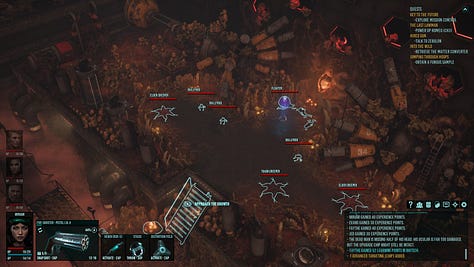
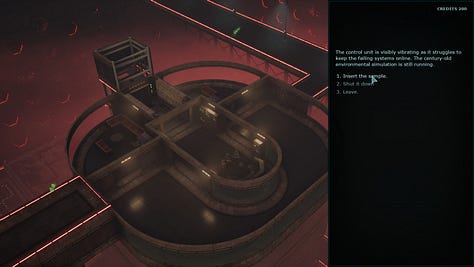


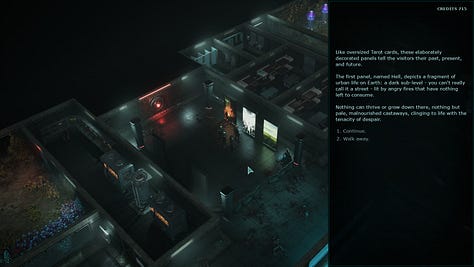

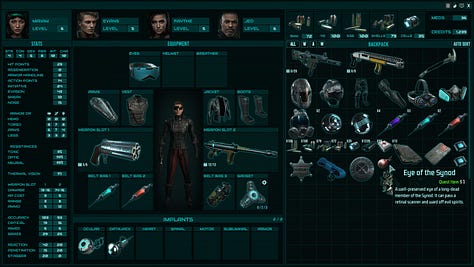

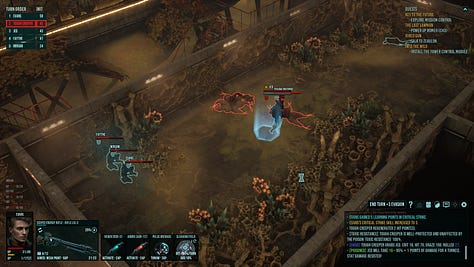
Colony Ship: A Post-Earth Role Playing Game is available on Steam and GOG. More information is available on the official website.


